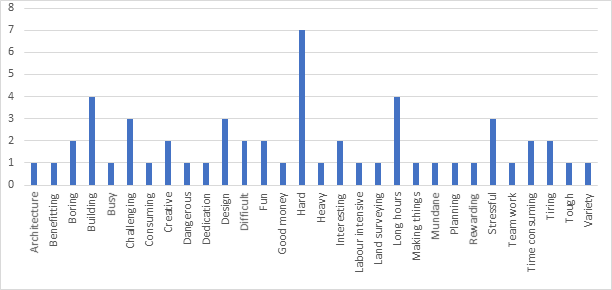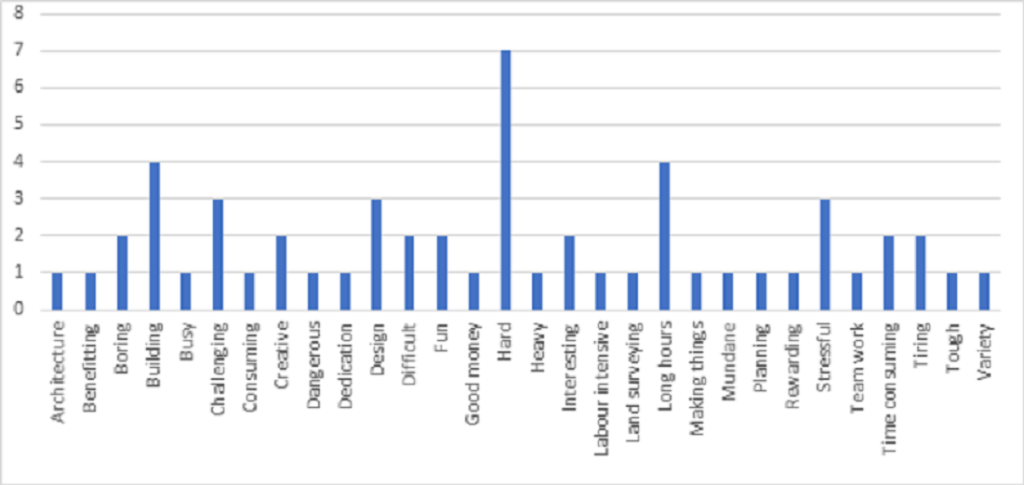
As part of her Quantity Surveying and Commercial Management course at the University of the West of England Abi Scott investigated the influences on school leavers’ choice to enter the construction industry and whether emerging technologies in the industry affects their decision for her dissertation. Taking some of her work and words, the following piece gives us a snap shot of this study and its’ findings.
The construction industry has an historical issue with difficulty attracting young people into the industry and with a large portion of the industry set to retire in the coming years, the shortage of available skilled labour and professionals is increasing. With modern construction methods expected to adopt emerging technologies to achieve gains of improved efficiency, safer construction sites and cost savings this research questions if this new construction industry is more appealing as a career choice to students aged 16-18 years old. The research methods used to produce this study were the collection of primary data via a questionnaire and secondary research via an extensive literature review of available resources.
The research highlighted the staggering levels of recruitment required in the coming years just to keep the industry on an even kiln with professional bodies such as the CITB estimating that 4,000 new entrants per annum are required to meet the forecasted growth demands of the South West region alone (Construction Industry Training Board, 2015). The research also highlighted other challenges to closing the skill gap from the aging workforce due to retire and the expected tighter restrictions on free movement within the EU due to Brexit. Due to the combination of the above factors it is expected that the lack of labour availability will be the biggest barrier the industry faces in achieving Government targets (Farmer, M., 2016).
The primary research data collected reflects the themes uncovered in the secondary research: young people are currently receiving very little, if any, careers advice on the construction industry from either their school or their parent’s. Despite numerous schemes in place to address the way the construction industry is perceived, the primary data collected shows that these schemes are not having the desired effect as a career in construction is still being perceived as a intensive, grubby and dull career.
The study concluded that despite several industry schemes in place to change the perception of the construction industry a large majority of the public still view the industry poorly and generally have very little knowledge of the industry and what we all do as Project Managers or Quantity Surveyor or Groundworkers and it is one of the biggest barriers to the industry’s ability to recruit. The study also concluded that emerging technologies in construction does not increase the appeal of construction and is unlikely to draw people in while the industry is still perceived poorly.
We have some marketing work to do in our industry, that much is clear, if we want to encourage and nurture future talent which will take us forward and fill these fulfilling and career-making opportunities so make sure you’re talking to your friends and family about how great your job is! Spread the word – construction is awesome!
Key phrase: skills gap, emerging technology, perception.

How would you describe the construction industry? Select 5 words – see graph
Participants were asked to write down 5 words they associated with the construction industry. This Graph shows the words they submitted, the most popular word amongst the group was “hard” followed by “building” and “long hours”.

